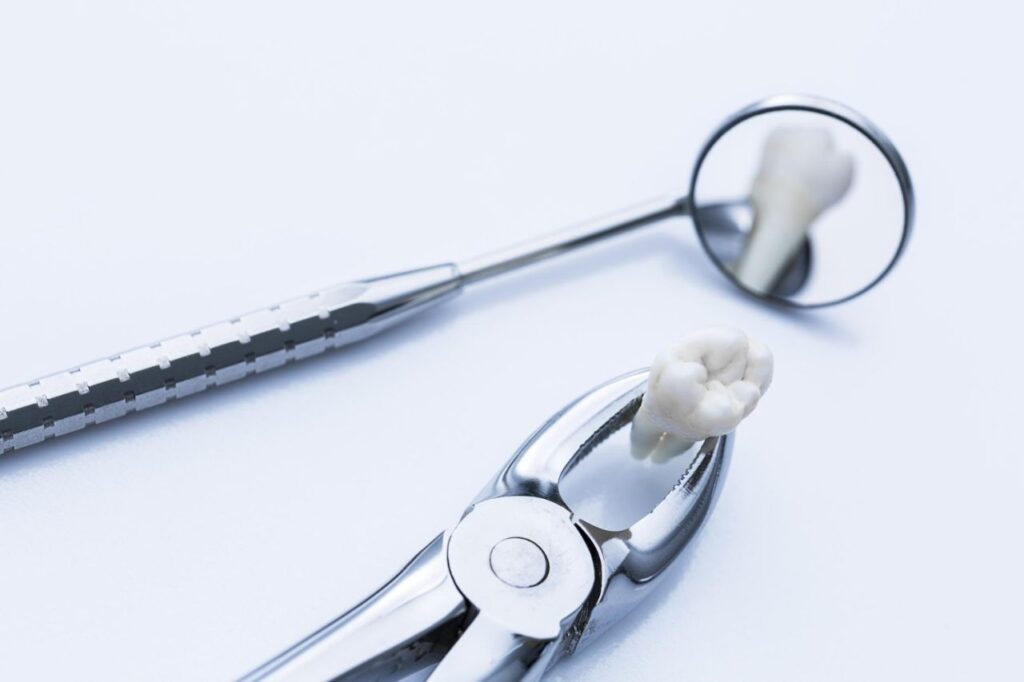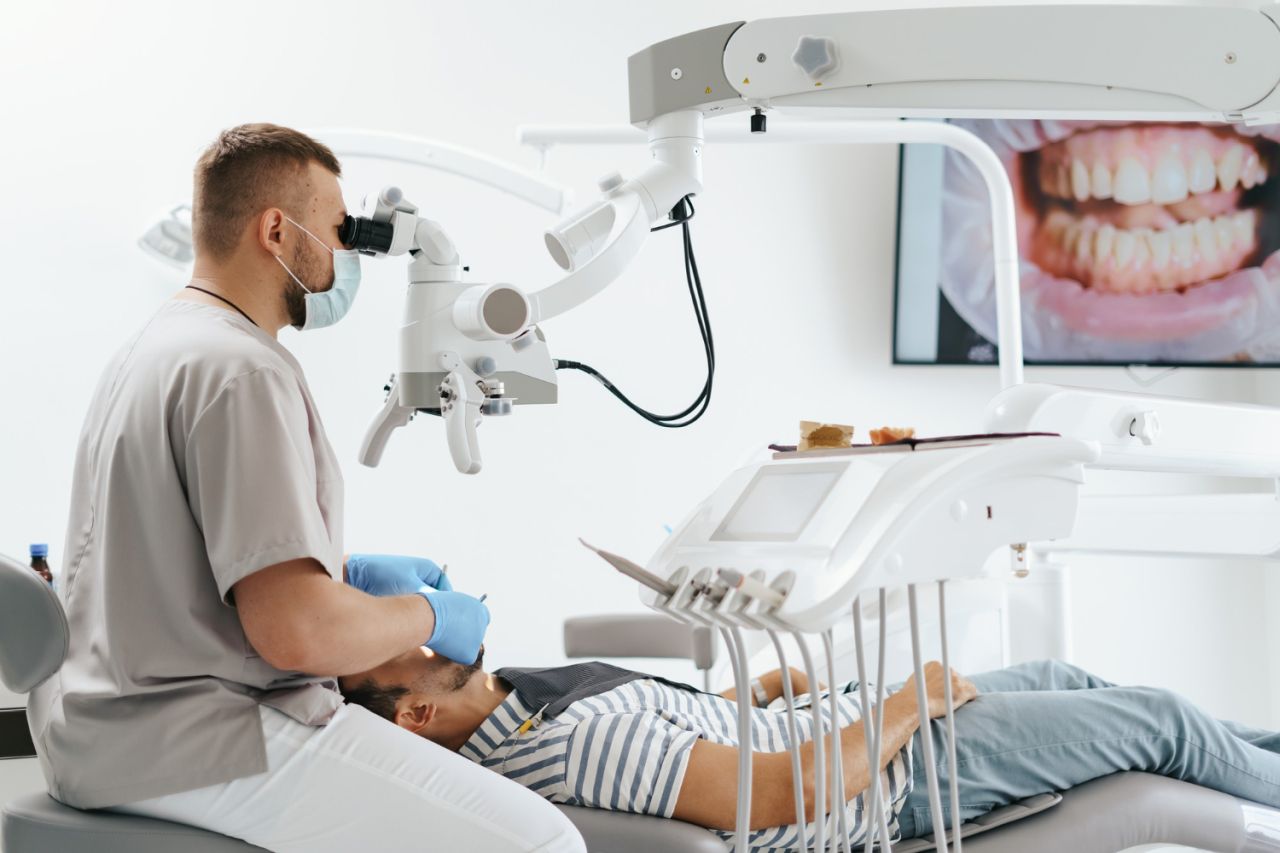What Purpose Do Wisdom Teeth Serve?

Almost everyone has wisdom teeth, but what are they for? Do they have a purpose? And if so, what is that purpose? Wisdom teeth can be confusing, and sometimes people choose to have them removed because they’re still trying to figure out what else to do with them.
In this blog post, we’ll explore the purpose of wisdom teeth and talk about some things you can do if you have questions or concerns about yours.
Do you know what wisdom teeth are for? Most people don’t and assume they’re just useless vestigial organs. But that’s not the case at all!
Wisdom teeth play an important role in our digestive system.
This post will take a closer look at what wisdom teeth do and why they’re so important.
We’ll also discuss when it’s necessary to have them removed. So keep reading to learn more about these little-known teeth!
Regarding Wisdom Teeth and Their Function
Many people are under the impression that wisdom teeth are the molars at the very back of the mouth that emerge later, are destined to create problems, and must be extracted.
Having said that, this wasn’t always the situation.
Even though we need our wisdom teeth for significantly less of a purpose today than we did in the past, we rely on them daily.
People that lived thousands of years ago, such as our early ancestors, relied on their wisdom teeth, also known as their third molars, significantly more than they do now.
In a universe in which meat was not properly prepared, keen blades weren’t utilised to cut meat into small bits, and eating food took a lot more strain on the jaw, there was a world in which there was no meat.
So the presence of the third pair of molars was essential.
However, as we get older and our brains continue to expand, the wisdom teeth in our mouths become less and less significant.
This is because the way we eat has fundamentally changed, and the amount of ripping, chewing, and squeezing that we perform has drastically decreased.
Even if the function of wisdom teeth in humans is becoming less important as time goes on, people who can develop them normally still have the potential to benefit from them.
Types Of Molars
There are two distinct categories of molars. They appear after a youngster has lost their primary teeth and include:
- Because they are the initial of the three molars to erupt at the age of six, the first molars are often referred to as the six-year molars.
- The second molars are sometimes referred to as the “12-year-old molars” since they begin to erupt around 12.
- The third molars, often known as wisdom teeth, are teeth that typically erupt between the ages of 17 and 21.1.
Molars have quite a large crown and two to four roots that are securely embedded in the jawbone, and as a result, they are able to endure a considerable deal of pressure when chewing, crushing, and squeezing food because of their anatomical structure.
The Purpose of Wisdom Teeth
There are many types of teeth based on where they are located in the mouth and what they do.
While the flatter, flatter teeth in the back of the mouth are responsible for grinding food down, the sharper teeth in the front of your mouth break food into smaller bits.
Molars are the name given to the flatter back teeth. The top, bottom, and both edges of the mouth each have their own set of four molars, making the total number of molars in an adult mouth three sets.
Humans obtain their initial set of “baby” teeth during infancy and early childhood and keep these teeth until their teen years, at which point they are replaced by an entirely new set of teeth that they maintain for the rest of their lives.
However, only two sets of molars, totalling eight teeth, come into play during the process of those adult teeth erupting.
The third set of molars, which are the ones that are located at the very back of the mouth, typically emerge between the ages of 17 and 21 in most adults.
Because they come in last, when you’re “older and wiser,” these molars are usually referred to by their more generic term, wisdom teeth.
It’s possible that our early ancestors needed this third set of teeth since their menus consisted of tougher foods (imagine meat that was considerably less tender than what we’re able to cook nowadays).
How Long Before You Get Your Wisdom Teeth?
Higher in the anatomy of the skull, where teeth are formed, a person is born with all of the teeth that they will ever have.
At first, a full set of twenty primary teeth would erupt and then eventually fall out. After that, 32 permanent teeth will emerge.
The first set of molars typically erupt around the age of six, the second set around the age of twelve, and the third and final set of molars, often known as wisdom teeth, sometime before age 21.
Anthropologists believe that mankind has steadily progressed beyond the point where they require wisdom teeth due to the easiness of our modern diets.
As a result, some individuals may never grow wisdom teeth. It is highly conceivable that wisdom teeth will go the route of the appendix by becoming entirely redundant in the future.
They might vanish completely at some point in the future.
Even yet, the majority of adults in the modern world get their wisdom teeth.
According to the findings of one study, at least 53% of persons aged 25 and older had seen the emergence of at least one wisdom tooth. Moreover, it was more probable for men than it was for women to have them.
Even if you cannot see all of your wisdom teeth, this does not mean that they are not present in your mouth.
There are instances in which the wisdom teeth will never grow and will never be noticeable. However, the presence of wisdom teeth behind the gums can be determined with the help of an X-ray.
Issues With Wisdom Teeth

Many historians are of the opinion that our predecessors had significantly broader jaws, which made it much easier for them to accommodate wisdom teeth once they had been implanted.
The necessity for wisdom teeth has diminished over time, which has led to a reduction in the size of our jaws. As a result, many individuals are unable to have wisdom teeth. The teeth develop in the correct manner.
It is imperative that these individuals get their wisdom teeth extracted to avoid causing harm to their other teeth, gums, or jaws. If wisdom teeth are not positioned correctly during placement in the jaw, they can force other teeth to shift out of line, as well as extreme inflammation and discomfort that can make it much harder to cleanse the mouth and lead to issues in the jaw.
Over time, both humans and our jaws have become more diminutive. A few different factors brought about this evolutionary advance.
Some researchers in the field of science think that as the human brain developed over time, it required more space, which resulted in the jaw being smaller.
However, the majority of the issues that are brought on by wisdom teeth are brought on by the fact that they do not fit.
Wisdom teeth, whether or not they are visible, have the potential to be problematic for oral health. Those third molars and incisors that haven’t broken through the gums are called impacted teeth. This can occasionally result in much more complications than the wisdom teeth themselves do.
The following are examples of issues that can arise when wisdom teeth are present:
Wisdom Tooth Infection
There are a few reasons why wisdom teeth are more likely to become infected than the majority of other teeth.
First, because of their location in the far back of the mouth, it might be difficult to floss effectively adjacent to them, which can increase the number of bacteria in the mouth.
Because they erupt into a mouth with several teeth, wisdom teeth sometimes become partly impacted. This results in additional nooks and crannies that are difficult to access.
Sometimes, soft tissue can form over a wisdom tooth that is partially impacted, leading to an infection known as pericoronitis. This can happen in certain situations.
Infection of the wisdom teeth can cause a variety of symptoms, including the following:
- discomfort or sensitivity
- painful or swollen gums
- red or bleeding gums
- discharge or seepage of white fluid around the teeth
- smelly breath
- the unpleasant flavour on your tongue
- jaw pain
- jaw swelling
- stiff jaw
- breathing, opening your mouth, or speaking can be difficult for you.
Schedule a visit to see an orthodontist if you’re having discomfort around the molars in the rear of your mouth.
Treating Wisdom Tooth Infection
Depending on the degree of the illness and where the wisdom teeth are located in the mouth, a few different approaches can be taken to treat it. The infection will initially be treated with medicines, which your dentist will prescribe. Dental treatment or operation is the most effective means of preventing reinfection once the affected region is no longer diseased.
Your orthodontist may treat the tooth by sealing in a cavity or fissuring around the emergence site.
This will reduce the amount of areas in which bacteria can grow and cause infection.
In some instances, dental surgery, which may involve the removal of all or part of the affected tooth, is the most effective strategy to keep the affected area clean and stop any additional discomfort.
Your orthodontist will be able to guide you through all of the options that are available for your mouth.
Reasons for Wisdom Teeth Removal
Patients frequently have their wisdom teeth extracted even when there is no infection present. Since they could cram your mouth as they grow in, possibly causing damage to or shifting other teeth, your dentist could advise having them extracted once they begin appearing as a preventive precaution against future suffering. This is because crowding your mouth may force other teeth to become damaged or shifted.
It is not uncommon for practitioners to advise patients to have their wisdom teeth extracted prior to undergoing orthodontic treatment, such as braces.
This is done to ensure that the patient’s other teeth will not erupt in the future and destroy the patient’s carefully sculpted jaw and teeth.
It is strongly suggested that adolescents get their wisdom teeth removed throughout the teenage years. People who have procedures to remove their wisdom teeth at a younger age, before the roots and bone have fully grown, tend to recover from the procedure more quickly. In addition, this can prevent any associated challenges associated from occuring in the first place.
When selecting whether or not to have these teeth extracted, you should remember that there are always dangers involved with surgery, so be sure to ask many questions before making your decision.
Your dentist will need to keep a close eye on your wisdom teeth if you choose not to have them extracted in the event that you change your mind. In addition, wisdom teeth tend to cause more trouble as one age.
Your wisdom teeth can be extracted by either a trained dental professional or an oral and maxillofacial surgeon.
They will provide you with detailed advice on how to get ready for the operation and what to do during the healing process.
What to Anticipate When Having Your Wisdom Teeth Removed
For concern that the treatment would be excruciating, many people choose to delay the removal of their wisdom teeth for as long as they can.
Since the patient is put under anaesthesia during the extraction of wisdom teeth, the treatment does not produce any discomfort. However, the patient may experience inflammation and discomfort after the procedure.
Putting the patient under anaesthetic, creating a small cut in the gum line to completely access the teeth, extracting the teeth, and finally cleaning and closing the sockets are the steps involved in the process of extracting impacted wisdom teeth or wisdom teeth that are developing in the wrong direction.
The gums once more. After having your wisdom teeth out, you should be cautious to keep your mouth clean and steer clear of anything that could aggravate the wounds left behind.
Purpose of Wisdom Tooth Removal Surgery
Suppose an examination and X-rays suggest that your wisdom teeth are impacted or may create orthodontic difficulties for you in the future. In that case, your dentist might advise that you have this operation done. Although not everyone has them, the majority of adults have anything from one to four wisdom teeth. The following are some of the potential issues that wisdom teeth can end up causing:
- Infection
- Tooth decay
- Damage to surrounding teeth
- Periodontal disease
- Bone loss
- Tooth loss
Throughout your regular dental consultations and with the use of dental X-rays, your orthodontist will keep track of the growth of your wisdom teeth.
Even if you don’t currently have any symptoms, they may recommend that you get a procedure to remove your wisdom teeth to avoid possible complications before they arise.
When wisdom teeth are present, it might be difficult to practise proper oral hygiene because they are located in a part of the mouth that is difficult to reach for cleaning.
You may be sent to an experienced practitioner in order to carry out the surgery. Before the procedure, the surgeon will arrange an appointment with you.
They will review your dental records and make any further X-rays necessary to determine the full extent of your surgical requirements.
If you face a dental emergency, such as extreme pain, fever, or loose teeth, you should immediately call your orthodontist or oral surgeon. However, you should wait for the scheduled time of your procedure.
How to Prepare
Before the operation, you should discuss any worries that you have with your doctor. They will be able to provide instructions on what to do in the days leading up to the operation as well as how to organise your recuperation time after the procedure.
They are also able to discuss with you the kind of anaesthesia that will be administered as well as how you are going to feel after the operation.
The severity of impaction and the number of teeth that need to be extracted will both play a role in determining how much the procedure to extract wisdom teeth will cost. Contact your insurance carrier and your orthodontist and surgeon to learn more about your advantages and what will be reimbursed.
You can get a head start on your recuperation by stocking up on foods that are simple to consume after the procedure, such as those that are soft or liquid-based. For example, smoothies, applesauce, oats, yoghurt, and other simple foods without the need for chewing could fall into this category.
Location
The procedure of removing wisdom teeth is carried out in a dental or oral surgeon’s office.
What to Wear
For the process, you should dress in comfy clothes that are loose fitting. Wear a blouse that allows the sleeves to be rolled up easily or one that has short sleeves if you are going to be receiving an intravenous anaesthetic. During the procedure, you won’t have to change anything different.
Food and Drink
Be sure to abide by your doctor’s instructions regarding what you can and cannot consume prior to your procedure. Instructions could be different based on the type of sedative that is utilised.
After midnight the night before the surgery, you won’t be allowed to consume anything by mouth to ensure that your stomach is empty for the intravenous anaesthetic you will receive.
Medications
Medications like aspirin, Advil, and Coumadin (warfarin), among others, may raise the risk of bleeding complications.
Before undergoing dental work, you should inform both your primary care physician and your orthodontist if you are currently taking any drugs, including those listed above. Then, in order to get you ready for the procedure, they will tell you whether or not you can continue taking your existing drugs, or whether or not (and when) you must quit taking them.
Informing your doctor about all of your medications, whether they are prescribed or over-the-counter, vitamins or other supplements, will assist you in avoiding any difficulties that may arise as a result of taking them.
What to Bring
Remember to bring any papers that may be required, as well as your dental insurance card.
Because of the effects of the anaesthetic, your doctor will most likely advise you to make plans for someone to drive you home following the procedure. This is because you will be sleepy after the procedure. However, if you so want, this individual can await you in the waiting area.
Pre-Op Lifestyle Changes

At least eight hours before the procedure, you should refrain from using tobacco and drinking alcohol.
What You Should Know About Letting Them Go
The removal of wisdom teeth is a painful process, and removing all of them at once is considerably more unpleasant.
On the other hand, if you think you have issues with your teeth in the future, try to cure the problem as soon as you can.
Many experts suggest letting them go sooner rather than later. Teenagers and early adults are ideal candidates for the treatment due to the fact that the roots of the teeth are frequently not fully formed during this stage of life, making the recovery period shorter and less difficult.
Even if it is performed on an outpatient basis, this is still considered an operation. You will have either a local or general anaesthetic administered to you.
Following the surgery, you will be given aftercare guidelines to help you recover more quickly and avoid infections. Jaw pain and soreness are common after surgery, as are other types of discomfort at the surgical site.
Because of this, a doctor may provide you with a prescription for pain medication. You may experience bleeding for a few days, but it should get less severe and eventually cease altogether.
The swelling that occurs as a result of this surgery is one of the most obvious adverse effects. For a few days, you can imitate the appearance of a squirrel!
But, unfortunately, you also can cause harm. After a few days, you should no longer be experiencing any of these symptoms, but you should still go to the dentist.
For the next few days, you will gravitate more towards soft drinks and foods. This is the spot to indulge in your sweet tooth if you are someone who enjoys ice cream and pudding.
If you smoke or chew hard food, gum, or straws, you should avoid doing so.
You should definitely book a follow-up visit so that the dentist can check on how well your mouth is recovering.
Maintaining good oral hygiene is one of the most important things you can do for your overall health.
Visiting the dentist regularly can help prevent tooth decay and discover other issues before they become more severe. In addition, ensure to brush and floss your teeth every day, and avoid foods and drinks high in sugar that can lead to cavities.
Healing After Removal of the Wisdom Teeth
After the procedure, your mouth will be more susceptible to infection than usual; thus, you must follow the recommendations given to you by your dentist regarding the proper care of your incisions.
This will most likely involve rinsing with salt water, refraining from smoking, and having a meal that does not include microscopic particles like seeds that can become lodged in your gums while they are healing.
In most cases, healing following surgery to extract wisdom teeth only takes a few days, although the pain associated with the procedure can often linger for up to a week. Inquire with your dentist about the kind of painkillers that are appropriate to take.
The healing process after having your wisdom teeth extracted can be unpleasant, but for many people, it’s well worth it in the long run to eliminate the need for further dental work down the road.
